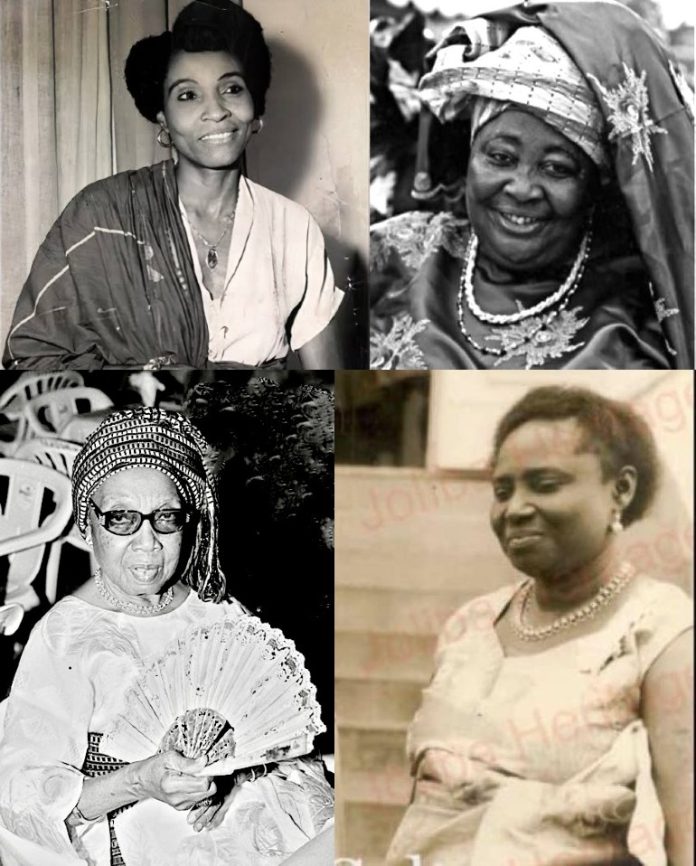IN the rich history of Nigeria, there are many unsung heroines who made a lasting impact on society.
Among them, four remarkable women stand out as beacons of courage and empowerment. They are: Janet Nwadiogo Mokelu, Haija Gambo Sawaba, Margaret Ekpo, and Lady Kofo Ademola.
These trailblazers broke stereotypes, challenged the norm, and fought for women’s rights when their voices were often ignored. SONIA OKERE chronicles the extraordinary lives of these brave women.
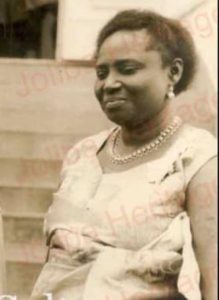
Janet Nwadiogo Mokelu
Many years ago, women were denied the right to vote, but one woman named Janet Nwadiogo Mokelu dared to challenge this law. Born on February 7, 1910, in Umuagu quarters, Asaba, Delta State, she was raised in a family that valued education. Janet attended St. Monica’s College in Ogbunike and later obtained her Grade II Teachers’ Certificate from Teachers’ Training College. She was a teacher for many years, and later, she became the headmistress at St. Barth’s School, Asata.
Impact and contributions
Janet’s journey into politics was marked by her involvement with the National Council of Nigeria and the Cameroons (NCNC) Party. In 1957, she contested and won a seat in the Eastern Region House of Assembly, defeating all male opponents, including the prominent Chief Byron Onyeama.
This historic election made her the first woman in the Eastern Region House of Assembly. Two years later, she was appointed to the Eastern House of Chiefs, a prestigious position that solidified her influence. Mokelu’s leadership role didn’t stop there. In 1944, she served as General Secretary of the NCNC Women’s Wing and Secretary General of the United Progressive Grand Alliance (UPGA) in 1964.
Through her activism, she spoke for the voiceless. In Enugu, back in 1949, the police fatally shot twenty-one miners who were peacefully protesting against the non-payment of their mine allowances.
Mokelu courageously led a demonstration by women in eastern Nigeria against the killing of those miners. Throughout her political career, she championed groundbreaking legislation, including bills demanding equal pay for married women and the right to vote. So, as a woman, whenever you cast your vote or receive equal pay, remember Janet, whose courageous efforts led to significant advancements in these areas.
She was the special adviser to the Anambra State Government from 1980 to 1983. Despite facing challenges such as threats to her life and arrest, she persevered. Janet Nwadiogo Mokelu passed away on March 31, 2003, at the age of 93, leaving behind a legacy that continues to inspire generations.
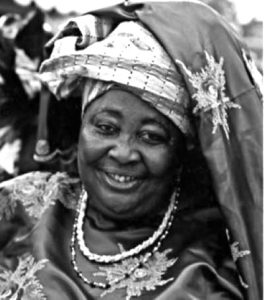
Hajiya Gambo Sawaba
Born on February 15, 1933, in Zaria (now Kaduna State), Hajiya Gambo Sawaba was a trailblazer in the fight for northern women’s liberation. Her birth name was Hajaratu Gambo, and while growing up, she attended Native Authority Primary School in Tudun Wada. Unfortunately, she was unable to further her education due to the death of her parents.
So, at the tender age of 13, she was married off to Abubakar Garba Bello, a World War II veteran. When she was pregnant, her husband abandoned her, and she had to raise her child alone.
Gambo’s impact and contribution
At just 17, Hajiya Gambo joined politics and made significant contributions to Nigerian society through her activism and political engagement. Due to her experience, she advocated against social injustices, particularly child marriage and forced labor. Gambo pushed for legislative reforms to protect vulnerable individuals.
Through her involvement in the Northern Element Progressive Union (NEPU) and later, the Great Nigeria People’s Party (GNPP), she amplified her voice and challenged the status quo. After being elected president general of the women’s wing of NEPU, Malam Aminu Kano gave her the name ‘Sawaba,’ which means freedom or redemption.
She also served as the deputy chairman of the Great Nigeria People’s Party (GNPP) and was mentored by the renowned Funmilayo Ransome-Kuti. Gambo was a pioneering figure in the fight against military rule in Nigeria. She played a crucial role in the pro-democracy movement of the 1990s and advocated tirelessly for democratic governance and respect for human rights.
Her unwavering dedication inspired many to stand up for their rights and demand a more just society. According to Wikipedia, she was imprisoned 16 times, yet she remained steadfast in her commitment to social justice.
Haija Gambo’s legacy
She had one biological child from her first marriage. With a compassionate heart, she adopted over 30 children from the streets and nurtured them. In fact, she was a mother to all. Sadly, on October 14, 2001, Haija Gambo Sawaba passed away after battling a prolonged illness. Although she’s gone, her legacy lives on. Her contributions earned her several awards, including the National Honours Award of Officer of the Order of the Niger (OON). Many years after she died, a general hospital in Kaduna and a hostel at Bayero University, Kano, were named after her.
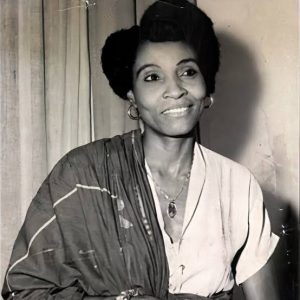
Chief Margaret Ekpo
Born on July 27, 1914, in Creek Town, Cross River State, Margaret Ekpo was a pioneering figure in Nigeria’s struggle for independence. With a fierce determination to make a difference in her community, she attended Esin Ufot Mission School and the Girls’ Institute in Calabar. After she completed Standard Six, she lost her father, and her plans to further her education were paused.
In 1938, Margaret married Mr. John Udo Ekpo, and they had two sons. A few years later, the family moved to Ireland, where she attended the Rathmine School of Domestic Economics in Dublin. Upon their return to Aba, Margaret founded the Domestic Science and Sewing Institute, while her husband began his medical career at Aba General Hospital.
Margaret’s impact and contributions
In the 1940s, colonial administrators were discriminatory towards indigenous doctors, and Margaret Ekpo’s husband was among those affected. In a time when women were rarely seen in political gatherings, she boldly attended meetings and rallies where she fearlessly spoke against injustice.
She also established the Market Women Association in Aba, and her goal was to unite and empower women to fight for their rights. As a member of the National Council of Nigeria and the Cameroons Party, she played a vital role in Nigeria’s anti-colonial struggle. Her dedication earned her a seat in the regional House of Chiefs, a rare honour for a woman at the time.
In 1954, Margaret founded the Aba Township Women’s Association (ATWA), and during the election that was conducted in 1955, Aba’s women voted and even surpassed male voters.
As a politician, Margaret persisted in advocating for women’s rights and championed the improvement of roads leading to markets.
Her activism spanned from the grassroots to the national level. After Nigeria’s independence, she transitioned into elected politics and secured a seat in the Eastern Regional House of Assembly in 1961. So she became the first woman from Aba and one of the few female politicians nationwide to hold such a position.
Margaret served as the Life Patron of the National Council of Women Societies (NCWS) until she died on September 21, 2006, at the age of 92. Her honours and recognitions include the Margaret Ekpo International Airport and the Ekpo Refectory at UNN, which were named after her.
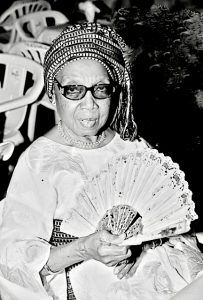
Lady Kofoworola Ademola
Born on May 21, 1913, Kofo Ademola was a Nigerian educationist, author, and women’s rights advocate. As a member of the Egba royal family, she was instilled with a strong sense of purpose and determination that guided her remarkable life’s journey.
Kofo’s educational journey took her from the esteemed C.M.S. Girls School in Lagos to the prestigious Vassar College in New York, and finally to the hallowed halls of St. Hugh’s College, Oxford. Here, she made history as the first black African woman to graduate from this revered institution. Her time at Oxford was marked by a fierce desire to challenge British stereotypes about Africans, and she penned a 21-page autobiography to share her experiences and perspectives with the world.
Returning to Nigeria in 1935, Kofo started her teaching career at Queens College, Lagos, and soon became a leading figure in women’s organizations. She was a founding member of the National Council of Women’s Societies in Nigeria and served as its first president from 1958 to 1964. Her leadership and vision also led her to serve as a board member of the International Council of Women.
In 1939, Kofo married Adetokunbo Ademola, a civil servant and a Yoruba prince. Together, they had five children: three sons and two daughters. Her marriage and family life did not deter her from pursuing her passion for education and women’s empowerment. Instead, she balanced her roles with grace and determination. Kofo Ademola co-founded two schools, Girls Secondary Modern School and New Era Girls’ Secondary School, in Lagos, to provide quality education and empower young women.
During her lifetime, she served as a director of the United Bank for Africa, secretary of the Western Region Scholarship Board, and member of the Nigerian Scholarship Board. She was also a prolific author who wrote children’s books that celebrated West African folklore and culture.
Despite facing formidable challenges and biases, Kofo remained steadfast in her pursuit of excellence. Her contributions were recognised with numerous honours, including the Member of the Order of the British Empire (MBE) and the Order of the Federal Republic (MFR). Sadly, she passed away on May 15, 2002.
As we conclude the exploration into the remarkable lives of these great women, don’t forget that their stories serve as a constant reminder that the power to effect change resides within each of us. Therefore, together let us build a world where barriers crumble, stereotypes shatter, and every voice is heard.

